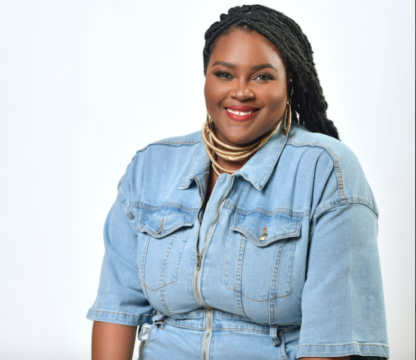What is Giving Compass?
We connect donors to learning resources and ways to support community-led solutions. Learn more about us.
What does dirt bike culture have in common with STEM education? They’re being utilized to end the cycle of poverty, disrupt the prison pipeline, and build bridges in communities at B-360, founded and led by Brittany Young.
Through STEM education, community engagement, career preparation, and events, B-360 equips youth and young adults with the skills to secure educational and career opportunities, while changing the negative perception of dirt bike riders. More than $1.2 million in taxpayer dollars have been saved by employing those at risk of incarceration.

Because of this inspiring work, Young was recently recognized as one of five Luminaries by the 1954 Project, a Black-led education philanthropy initiative to fund diverse Black leaders. In the following Q&A, Young shares more about Kingmakers of Oakland and offers advice for donors.
Q. What inspired you to create B-360?
I was fed up with systems that did not make sense, especially for Black people. Around the time of the Freddie Gray uprising in Baltimore I lost my little brother to the prison system for nonviolent offenses and was angry at the response for nonviolent offenders. I also was at my end with the STEM industry that had never experienced Black kids like me from cities. All of this coupled with two problems:
- Needing to make STEM education more culturally relevant to show Black students how smart we are and ignite genius. Baltimore has over 120,000 STEM careers, but doesn’t have ways to capture natural talent.
- The need for programming and proactive solutions for nonviolent offenses; instead of simply sending people to prison, we can create holistic solutions that grow people as assets.
How is your organization helping to create a more equitable landscape for education in the U.S.?

When we think of educators, people do not think of nonviolent offenders with the skills to lead classes, teach, and grow students. Similarly, when we think of STEM professionals, we forget the kids who may not know they have talents like fixing dirt bikes that can translate into lucrative careers. We are recreating this landscape to make sure we don’t just throw a book at a student but instead show how their everyday skills translate and to meet them at the intersection of culture. For nonviolent offenders, we are also reworking a broken system that invests in the person and gives transferable skills that can deter/prevent crime as well as create economic gain and education.
We’re creating lifelong learners but igniting their innate genius with passion.
Q. What do you see as the biggest challenges facing young people of color in the United States today? What makes you optimistic?
The biggest challenge facing Black kids is the ability to simply exist and be. We often are taught to conform, to shrink ourselves, to code switch, and are met with microaggressions and feel like we do not belong. The reality is we do not need to fit in with the broken system and that is what makes me optimistic. I see a future where Black kids can simply be whomever and whatever we want to be and not feel the need to dim our light! Im optimistic because I experience this new reality in real time with our students and young people. Their resumes are longer than mine from press conferences with the mayor, being on Steve Harvey TV, TED Talks, and more all while wearing their full Baltimore accents, and not being afraid to control their own narratives.
Q. What results do you hope to achieve with The 1954 Project's support and funding?
I am big on getting out of survival mode and have been transitioning into sustainability; this funding and network will allow me to make critical hires, to be able to forecast myself and my organization for some years to come, and will provide critical support to sustain B-360 and begin to think about how the org can thrive. We launched a campaign for the first ever dirt bike campus in the country and this will allow me to recruit the necessary talent to make that dream a reality as well as to make sure I support growing more leaders and successors.
I am also looking forward to having the support and allies offered from the organization because this work can be difficult. I hope to have a network that can lend advice and be integrated into a family that chose me because they truly care and appreciate not only B-360, but helping to make Brittany healthy and whole on this journey.
Q. How can philanthropists help reimagine our education landscape and better support Black education leaders in the United States?
Direct investment in Black educators and leaders like myself is crucial. Often the funding landscape operates at a deficit and scarcity mindset that makes it seem like only one of us can be successful and only one of us can make it. I look forward to philanthropists that want to sow financial seeds in my work but also want to be a sponsor to advocate for our work especially in circles that we are not in. Reimagining education to support Black leaders means utilizing privilege assets, and networks to show up for us as we do the work rooted in community; it also means not being afraid to change mindsets, to be an ally, and to offer support beyond finances.